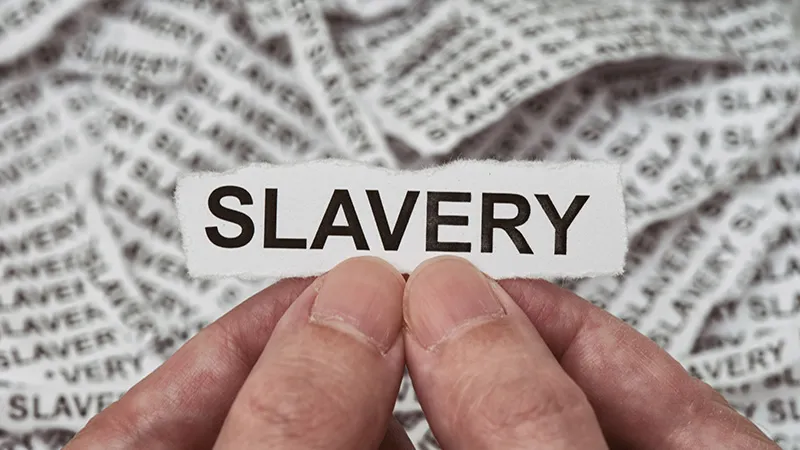In the UK, modern slavery is a crime under the Modern Slavery Act 2015, and if you are a victim, you can receive immigration support. Modern slavery refers to situations where people are exploited, controlled, and forced to work or provide services against their will — often through violence, threats, coercion, or deception. Modern slavery, which includes human trafficking, forced labour, sexual exploitation, and criminal exploitation.
This is the most documented form of trafficking involving Nigerians in the UK. Many Nigerian women and teenage girls are trafficked to the UK (and other parts of Europe) under false promises of jobs or education. They are then forced into prostitution or escort work. The UK Home Office has documented different cases involving a trafficking gang operating between Benin City and London — they used juju oaths to control dozens of young Nigerian women and force them into prostitution in UK cities.
Despite tough UK legislation, modern slavery persists in plain sight across British cities, suburbs, and rural areas. According to the UK Home Office, tens of thousands of people are believed to be trapped in modern slavery across the country. In 2023 alone, over 17,000 potential victims were referred to the UK’s National Referral Mechanism (NRM).
Victims can be:
- Adults or children
- Men or women
- Legal or undocumented migrants
- Individuals with learning difficulties or other vulnerabilities
It is important to understand that modern slavery includes human trafficking, but not all cases require the victim to be moved from one place to another.
Defining Human Trafficking: Three Key Elements
Under the law, the definition of human trafficking can be broken down into three core parts:
- Action — You were moved by another person, either within the UK or across borders.
- Means — The person used, or threatened to use, force, coercion, or deception to control you.
- Purpose of Exploitation — The person’s intention was to exploit you, by forcing you to work, commit crimes, or participate in the sex industry, among other forms of exploitation.
Crucially, it is the intent to exploit that matters — not whether the action was completed.
UK special Considerations for Children
Children receive additional protections under the law. If you are a child victim of trafficking, it does not matter whether you were coerced, as legally, a child cannot consent to their own exploitation. In cases involving children, the act of moving them is not required for the exploitation to be recognised as modern slavery.
Support for Victims
Victims of modern slavery and human trafficking can seek official recognition through the National Referral Mechanism (NRM), an independent part of the Home Office. If the NRM accepts that you have been a victim, several avenues of support become available:
Immigration: Discretionary Leave to Remain
Victims accepted by the NRM may apply for Discretionary Leave to Remain (DLR) in the UK if one of the following applies:
- Medical treatment: You require medical treatment that is unavailable in your country of origin.
- Pursuing compensation: You need to remain in the UK to seek compensation against your traffickers.
- Cooperating with police: You are helping law enforcement investigate the people responsible for your exploitation.
If granted, Discretionary Leave to Remain typically lasts between 12 months and 30 months. Before the visa expires, victims can apply for an extension if the reasons for granting the visa continue to apply.
Asylum Options for Victims
If you were trafficked in your country of origin and now fear the risk of being re-trafficked or facing harm upon return, you may also apply for asylum in the UK.
Victims granted asylum receive longer-term protection and may eventually apply for permanent residency.
How to Report Modern Slavery
Modern slavery is a crime that thrives in the shadows. Public awareness and action are crucial in tackling it.
If you suspect modern slavery is happening — in a business, a household, or elsewhere — you can report it in several ways:
- Modern Slavery Helpline: Call 08000 121 700
- Police: Dial 999 in an emergency or 101 for non-emergencies
- Crimestoppers: Report anonymously on 0800 555 111



